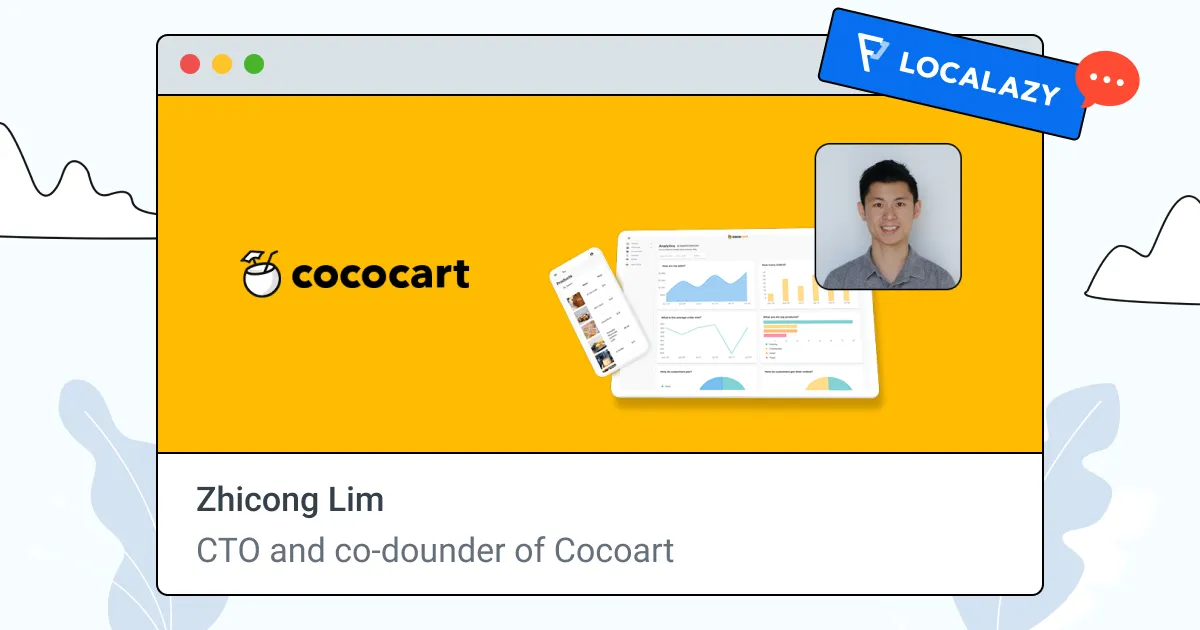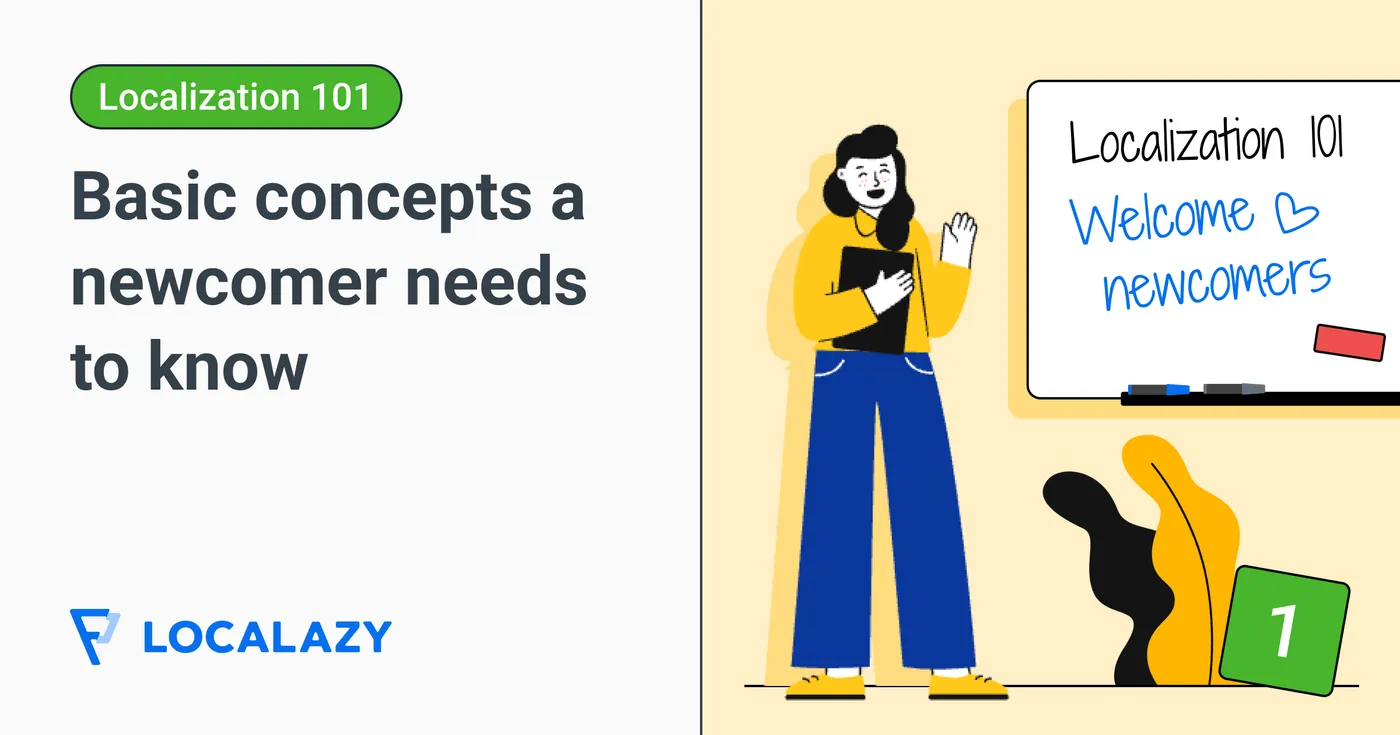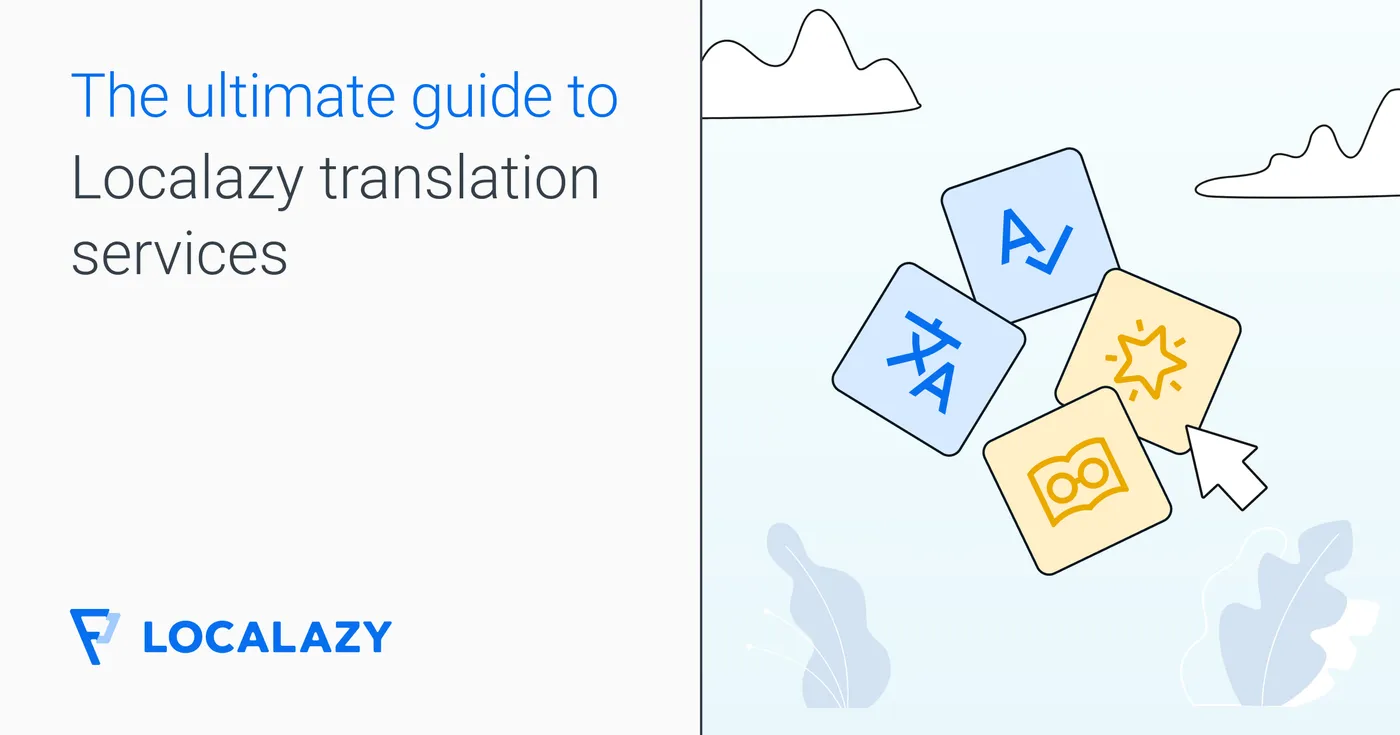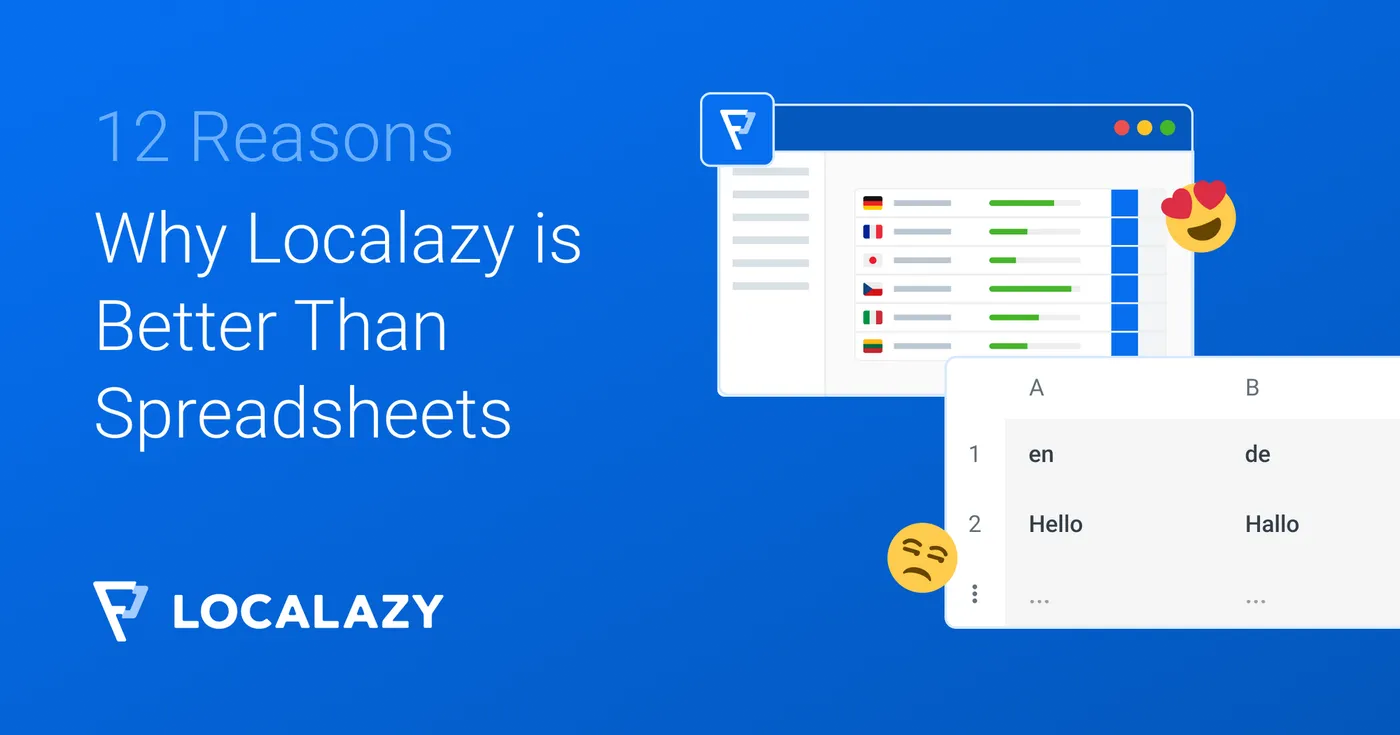Zhicong Lim is from Singapore and graduated from the University of California, Berkeley, with a degree in Electrical Engineering and Computer Science. He worked at multiple startups in Silicon Valley as a software engineer and then as a product manager. He now leads the engineering team at Cococart.
💬 About Cococart.co 🔗
Hi Zhicong, please tell our readers what is Cococart and who are your users? 🙂
Cococart empowers local businesses to sell online in minutes. Many small and beginning businesses are still taking orders manually over WhatsApp, DMs, or Google Forms. Cococart helps them set up their own ordering site with no code, no design, and no app downloads. Through Cococart, they can easily manage their inventory, payment methods, and customer orders.
We're used and loved by small local businesses. Our users can sell everything from food to cosmetics to appointments! Our users range from brick-and-mortar stores to individuals selling from home.

🚩 Why Localazy? 🔗
How is Localazy used in your product?
We use i18next for our localization and have paired it with Localazy to provide a simple interface for our translators to view the texts in our web app and add their translations. The Localazy CLI helps us both upload source strings and download the translations easily.
Why did you decide to use Localazy for app localization?
We chose Localazy because of the strong support for startups like us. Starting with Localazy is affordable, and they offer flexibility in payments with both monthly subscriptions and lifetime source key limit increases. Most other localization tools do not provide lifetime purchases. 🤩
Learn more at Localazy Pricing
Which alternatives did you consider?
We considered Localize.io, but they seem to be optimized only for mobile apps instead of web apps. Their pricing by MAUs also doesn’t make sense for us because our merchants attract a high number of low-value visitors.
We also considered SmartCat, but they seemed more appropriate for larger teams. Their UI isn’t as clean as Localazy, and is bloated with a lot of features that we don’t need. It was much easier for us to get started on Localazy.
Describe the process of introducing Localazy to your product. Did you face any challenges or issues? How have you overcome them?
We were able to start using Localazy completely by ourselves using the documentation. The docs are well-written and super helpful. We initially had some issues with plurals in i18next, but the Localazy team was extremely efficient in adding that feature for us within days! 🥳
What are the most significant outcomes and benefits of bringing Localazy to your product?
Localazy has helped us expand quickly to new markets. The interface is so intuitive that our translators were able to use it with zero onboarding required. Thus, we have been able to bring on translators quickly and move fast in expanding our reach to new geographies!
Recommended article: Intro to Localazy from translator's perspective
What are your favorite Localazy features, and why?
Localazy's reverse machine translations help us quickly verify that our translators' work is accurate. We use it as a sanity check when reviewing translations in languages we don't know.
We also like how Localazy highlights content placeholders so that our translators know that these placeholders are not meant to be translated. Our translators are non-technical, so it really helps them understand those symbols within strings.
You don't have to source and invite your own translators! Hand over all the localization work to our experienced Continuous Localization Team and focus on building your product! 🧩
Lastly, the chat support has been fantastic. The Localazy team constantly monitors the chat, and we have been able to get precise answers to our questions quickly, even on highly specific technical questions!
✔️ Closing words 🔗
Would you like to share any statistics?
We're a small team of 9. Our product has grown organically to businesses in 75+ countries, so we're trying to localize for major markets as fast as we can! We have completed localization for four languages, with an external translator for each of them.
Could you share your perspective on software localization?
Localization is necessary because we want to expand our product to reach as many markets as possible. We've built a product that is flexible enough to be used by anyone around the world, but we just need to ensure that it is in their language.
Our merchants also often take orders from customers that may not speak English. Hence, their storefront needs to support as many languages as possible to maximize their sales.
Do you have any tips or advice you'd like to share with our readers?
When building the initial version of your product, you can build it for just one market without localization. However, localization is a must once you've found a product-market fit and want to expand internationally. Thankfully, we found that it was easier than expected to support localization, particularly with tools like i18next and Localazy!
🥥 Learn how to start with Cococart in minutes 🔗
🏆 Share your story! 🔗
Do you love using Localazy? Would you like to share your own localization story? Go to the community section and apply for an interview now! We will promote your product on our blog and you'll get rewarded for it! 😉
Get featured on the blog - answer our questionnaire in the community section and start the conversation!




